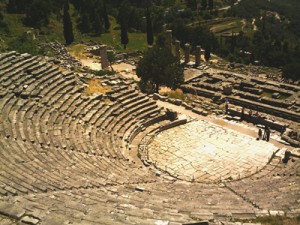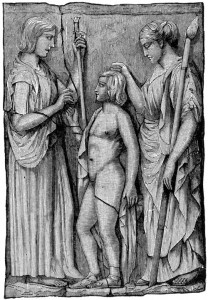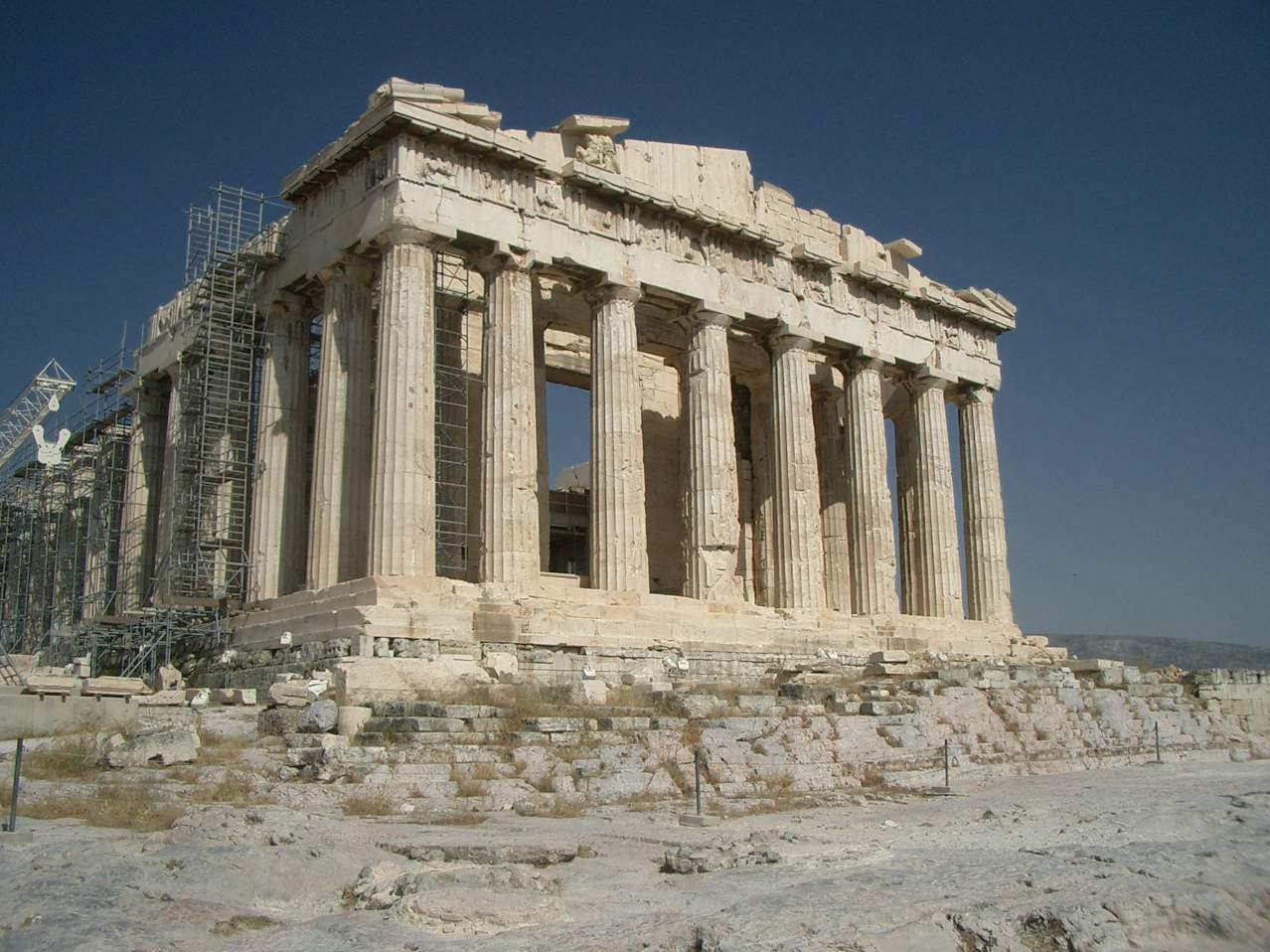There’s an old saying in the West that resonates painfully during this period of Greek and transatlantic challenge and testing: “We’re All Greeks.” It means that the basic foundation and framework of our way of thinking in the West was poured and erected over 2500 years ago in Ancient Greece. We think the way we think in the West because of the creative explosion that occurred during Athens’ Golden Age, ignited by people like Thales, Aristotle, and Pericles.
 The question is: What have we become, and where are we headed?
The question is: What have we become, and where are we headed?
I submit that the last embers of the fires that built the Parthenon are quickly growing cold, and that there is no choice but to prepare a new hearth, before the ancient flames become a pyre. What better time to reflect on these things than during the XXX Modern Olympiad?
Before looking back over our history in the West however, it’s essential to gaze with steady eyes upon the present world, which is global in scope, nature, and challenge. For there will not be a birth of the new in the West without a birth of the new in the world.
There have been two major creative explosions in recorded history, occurring at about the same time—500 BC. One, in classical Greece, was essentially intellectual and externally oriented; the other, in ancient India, was essentially spiritual and inwardly oriented.
The Greek explosion laid the foundation for science and technology, as well as the fluctuations between oligarchy (as we now have in America), and democracy such as it is, and has always been.
Thucydides’ description of one ancient Greek revolt presages Robespierre’s Paris: “the Corcyreans engaged in butchering those of their fellow citizens whom they regarded as their enemies…sons were killed by their fathers, and supplicants were dragged from the altar or slain on it…revenge exacted by the governed who had never experienced equitable treatment, or indeed, aught but violence, from their rulers.”
Though the ancient Greek philosophers would be aghast, the modern world owes much of its shape and shallowness to their emphasis on reason, logic, and outward observation. Sure, there were heretics like Socrates, whom Western philosophers ever since have both revered and dismissed, but in the main, “we’re all Greeks” in the worst sense of the phrase now.
Indeed, the importation of Eastern philosophy onto the increasingly arid soil of Western thinking and being is evidence of a desperate search for meaning and inner substance in a world of tedious materialism of the mundane. It isn’t working, neither enriching nor enlivening our fractured and philistine Western souls, because at bottom, we’re still externally oriented. And now so are the Indians.
of a desperate search for meaning and inner substance in a world of tedious materialism of the mundane. It isn’t working, neither enriching nor enlivening our fractured and philistine Western souls, because at bottom, we’re still externally oriented. And now so are the Indians.
Though I haven’t been there, I’ve heard people I respect say that you can still catch a whiff in some places in India of the creative explosion that occurred at the time of Siddhartha. But in the next breath they say what we all know, that India is racing to be like us, to have the things and riches we have, and that whatever is left of that original fire is being lost.
Six hundred million Indians, twice the population of the United States, are without electrical power today, because their ‘development’ has overtaken their infrastructure.
And perhaps much of the inchoate rage of a small segment of highly reactive and violent people in the Muslim world stems from the much larger intrusion and invasion of the Western juggernaut. After all, we’re steamrolling centuries of inner meaning and substance, flattening the Islamic world and the entire world into one homogenous gray paste.
 Also in the news today, the American presidential candidate of what has become an extremist Republican Party, Mitt Romney (from my home state–the ‘mitt’ of Michigan), declared, with unbelievable chutzpah, that the superiority of Israel’s values and culture, shared with the United States, was responsible for the economic disparity with the displaced and ghettoized Palestinians.
Also in the news today, the American presidential candidate of what has become an extremist Republican Party, Mitt Romney (from my home state–the ‘mitt’ of Michigan), declared, with unbelievable chutzpah, that the superiority of Israel’s values and culture, shared with the United States, was responsible for the economic disparity with the displaced and ghettoized Palestinians.
When one of his aides (Romney makes so many gaffes he’s super-insulated from media questions) was asked about it in Poland, he embodied the nadir of American culture by a perfect, pithy reaction: “Kiss my ass. This is a holy site.”
Essentially, there have been three streams of consciousness in the last 2500 years—an Indian stream, which was deeply religious in the true sense of the word, flowing from doubt, inquiry, and inwardness; the Western stream, stemming from classical Greece but hijacked by Judeo-Christian Rome, a world of faith, belief, and externality; and the Islamic stream, which at the core has much more in common with the Western stream, based on faith and belief, than many Muslims like to think.
(Don’t ask me about China. They went the way of Confucius, not Lao Tze, and have become a nation of Americans with a communist government. But they have to awaken and reclaim the best in their history too.)
Now all three streams are drying up before our eyes, as the world flows together in one giant effluvium, dominated by the worst of our misguided and misbegotten human nature.
Though I’m skating on the edge of despair, I won’t quit, and neither should you. Is a global rather than regional creative explosion possible now, one that changes the basic course of man, which neither the Eastern nor Western creative explosions achieved?
Can the immense material of darkness in human consciousness be dispelled, and ignite? Is that the source of the fuel and potential fire for humanity as a whole?
If so, where will this unprecedented revolution first ignite? Can lightening strike in Greece or India again? Or, as absurd as it sounds to my ear, on the western shores of America, a nation now mucking about at the bottom of the spiritual barrel?
Like a large mirror focusing the sun’s rays in the desert, a small number of human beings, focusing their attention together, can burn through the hardest material.
But the light has to be focused on one spot. Then the viscous totality of human consciousness, which is now indisputably one thing, would begin to burn.
That fire, whenever and wherever it ignites, will burn without smoke, imperfectly purging the human mind of its domination by illusion and evil.
Martin LeFevre

